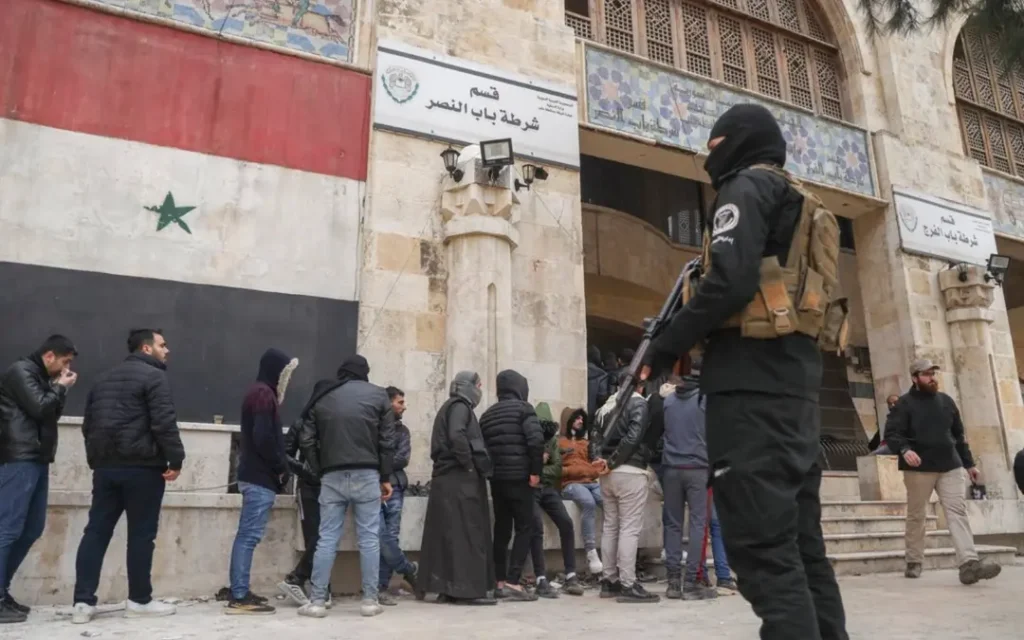Syrian Government Overthrown: After Assad Family’sfamily’s 50-year rule ends, stunning revolution
The Assad family’s 50-year rule in Syria ended Sunday morning in a dramatic turn of events as the Syrian government… collapsed. An unexpected, lightning-fast rebel offensive triggered this sudden overthrow as rebels dashed through government territories to reach the capital, Damascus, in just 10 days.
Syrian state television shockingly aired a statement from an opposition group, saying that President Bashar al-Assad had been ousted and all detainees in the country’s prisons freed. Calling itself the Operations Room to Conquer Damascus, the group urged all opposition fighters and citizens to defend the state’s institutions for the sake of a “free Syrian state.”

Syrian opposition leaders had said earlier Monday that Assad had fled the country, going to an unknown location to escape insurgent fighters who had reached the heart of the capital had fueled the rumor, as had this bold announcement just hours later. On Sunday, Rami Abdurrahman, head of the Syrian Observatory for Human Rights, confirmed that Assad had boarded a flight out of Damascus.
Prime Minister Mohammed Ghazi Jalali added in a statement to the media that the Syrian government will transfer its responsibilities to a transitional authority. However, Jalali did not address reports of Assad’s flight from the capital. He vowed to keep working and encouraged citizens to protect public property instead.
Iran’s state television, a key backer of Assad’s regime, meanwhile reported that sources from Al Jazeera said Syria’s leader had emerged from the capital. The Syrian government has made no formal announcement about Assad’s departure.
Damascus roared to life as the sun rose—jubilant cheers from the streets and crowds at the mosques ended prayers. Chants of” God is great ” and anti-Assad slogans filled the air. A few even fired their guns into the air in celebration, and still more honked car horns as a spontaneous act of joy. It was electric, far from the years of fear and repression that existed under the Assad regime.
Omar Daher, a 29–year–old lawyer, said, “I can’t believe it.” “This is indescribable to see after the terror that Assad and his father put in us,” Saeed said. Daher called Assad a dog, a criminal, and a tyrant, as he lost his father to Assad’s security forces, and his brother is still in detention.
The symbols of Assad’s rule were being torn down more quickly than the rebels could be. Doors to the police headquarters in the capital were ajar, an army checkpoint empty, uniforms discarded in the dirt under a portrait of the fallen leader. Fighting was still raging in the suburbs of Syria’s capital, and footage from opposition media showed a tank in the heart of Damascus.

This was the first time that opposition fighters had reached the capital since 2018, a sign of the regime’s crumbling grip on power. The year before, Syrian government troops retook areas on the fringes of Damascus after years under siege. The city had fallen without a fight now.
According to pro-government radio stations, Damascus International Airport was evacuated, and all flights were suspended. But they also said opposition forces had entered the notorious Saydnaya military prison, north of the capital, and released all the prisoners held there.
Government forces abandoned Homs, Syria’s third-largest city, which was also taken over by rebels. And this strategic city sits at the crossroads between Damascus and Syria’s coastal provinces, where Russian naval bases are concentrated and where Assad’s loyalists have fought to keep control.
But the sudden collapse of Assad’s regime has brought Syria to a crossroads. Despite that, for many of Syria’s inhabitants, the end of the Assad family means the start of a new era, something that a decade ago would have been unfathomable. However, the revolution did come in a sudden wave, and its implications will continue to resound throughout the country for years.




